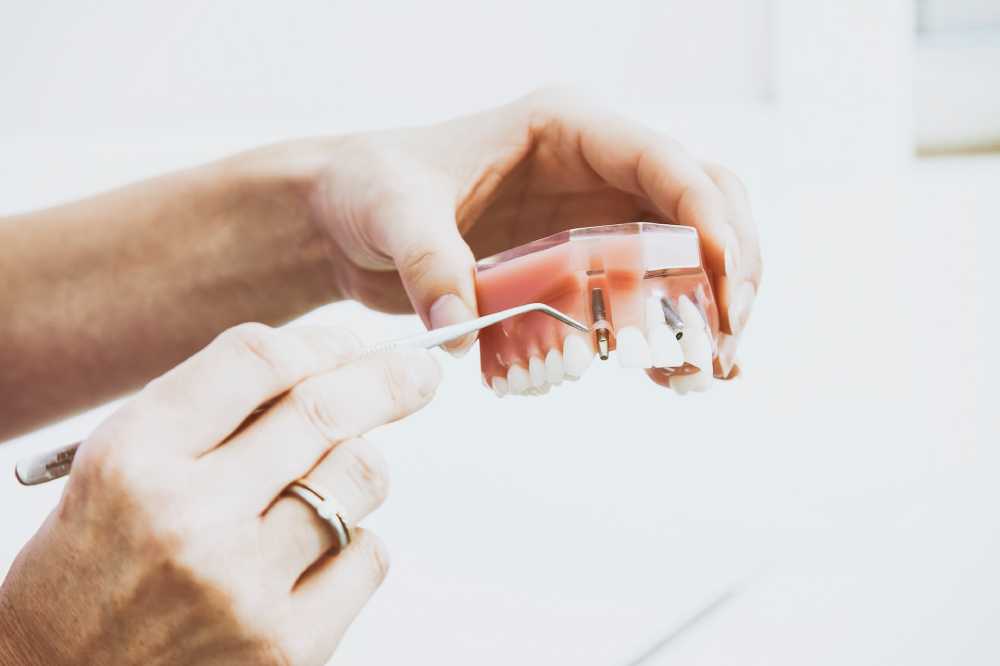Dental implant pain can be quite uncomfortable. If the pain doesn’t subside, it might be a sign of infection or another problem.
It is essential to take the prescribed medication for pain management. Taking ibuprofen at recommended intervals will help to reduce pain and swelling. Other medications may also be needed.
Avoiding Hard Foods
A diet involving hard and sticky foods puts much strain on dental implants. These foods can also get stuck in the implant site and cause pain. Avoiding such foods and sticking to soft, nutrient-rich meals is best.
Vitamin-rich smoothies and protein shakes are a great way to nourish your body with essential vitamins. You can add bananas, mango pulp, yogurt, and various vegetables for the nutrition you need. Other healthy options include mashed potatoes, poached pears, and scrambled eggs. Warm, soothing soups like chicken broth and vegetable soup are easy on the mouth and provide important minerals.
It is normal for gums to become discolored after surgery due to bruising. However, this should subside within 24 hours. According to experts in high-quality dental implants in Pasadena, practicing good oral hygiene and attending dental appointments twice a year can help minimize pain and reduce the likelihood of complications in the future.
In addition, taking over-the-counter pain relievers before the numbness wears off helps alleviate throbbing and tenderness.
Taking Medication
A dentist from Art of Smiles may prescribe pain medication or antibiotics to make a recovery more comfortable. Taking these medications as directed is essential to avoid complications. If you experience nausea as a side-effect of pain or antibiotics, take an anti-emetic medication as instructed.
Some discomfort and swelling are normal, but you should notice that the pain reduces over time. If the pain persists or worsens, contact our office for further instructions. In some cases, persistent pain or a noticeable change in the implant site can indicate infection or other complications.
In addition to avoiding hard, crunchy foods that can irritate the implant site, it’s important to rinse with warm salt water to help reduce inflammation and wash away bacteria that can increase the risk of infection.
Avoiding Straws
Avoiding straws following dental implant surgery is important, as the suction could dislodge the blood clot that forms at the surgical site. This can set back your healing and lead to painful complications like dry sockets.
Sticking to liquid and soft foods like yogurt, mashed potatoes, and soup is essential during recovery. These foods are not only delicious but are also easier to chew than hard or crunchy foods.
Patients should also avoid excess spitting, rinsing, and strong chewing. Swelling is common after oral surgery and can increase discomfort, so we encourage you to use ice packs on the area of your face where the surgery occurred. In addition, you should take pain medications as instructed. You may also need to take an antibiotic to fend off infection. Taking these measures can make your dental implant recovery faster and more comfortable.
Avoiding Excessive Activity
Taking it easy is a must after dental implant surgery. Jumping back into strenuous activities like exercise can put too much pressure on the surgical site and increase the risk of complications.
Foods that require too much chewing should also be avoided because they could dislodge the implants or cause them to shift out of position. This includes hard or crunchy foods, like nuts, chips, granola, popcorn, and taco shells. It is also good to steer clear of chewy foods like taffy or caramel because they could stick in the wound and cause infection.
It is normal to experience pain and tenderness after a tooth implant procedure, but it should subside within a few days. If discomfort continues, consult your dentist about a prescription or over-the-counter painkiller. You may also find relief from ice packs or cold compresses. A cold compress helps to constrict blood vessels and reduce inflammation and swelling.





